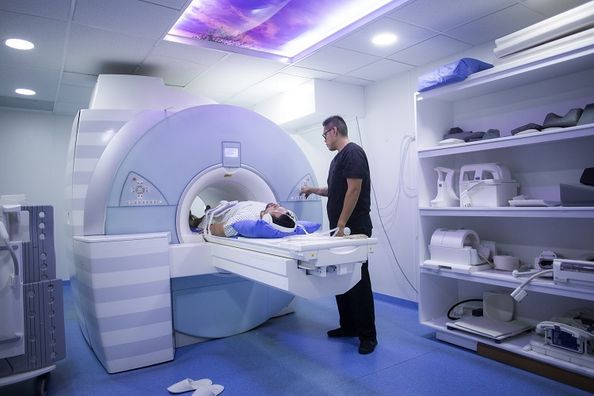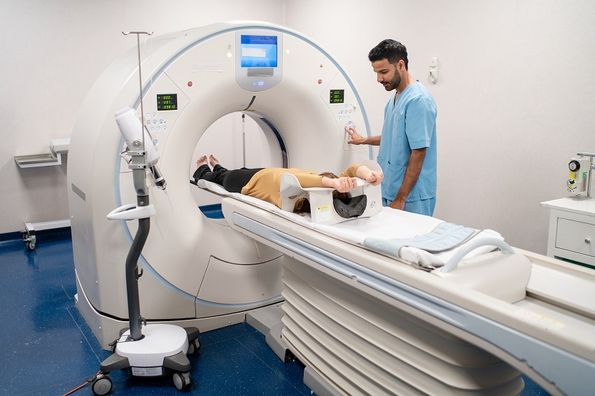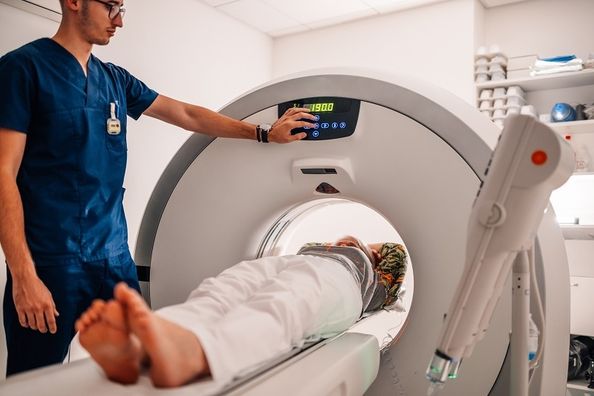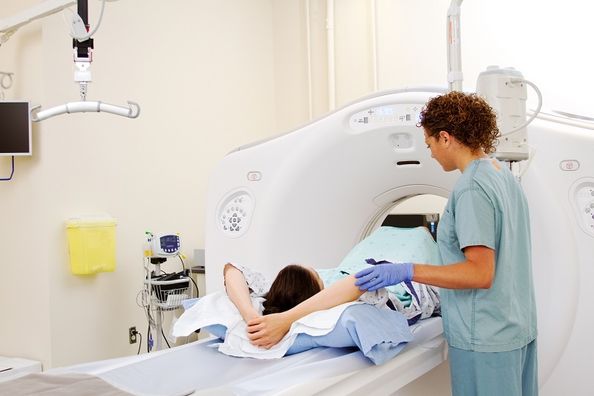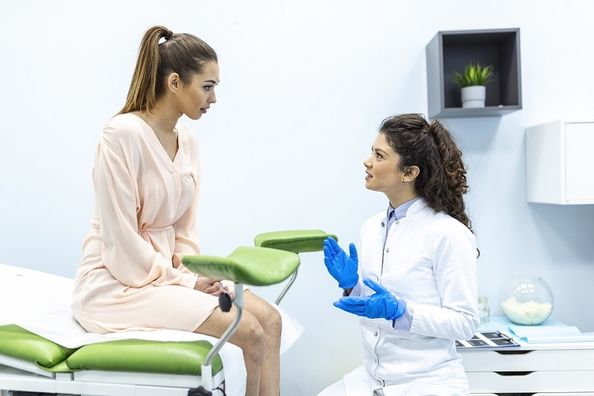You did it: You overcame the hesitation, the fear of awkwardness, the prep, and got a colonoscopy. (And it wasn’t nearly as bad as you thought it would be).
Colonoscopies are the gold standard of colorectal cancer screenings. During a colonoscopy, your provider will look for and remove polyps (clumps of cells on the lining of your colon that could become cancerous) and search for signs of cancer. A colonoscopy can significantly lower your risk of developing or dying from colorectal cancer.
But getting a colonoscopy is only the first step. Once the test is done, your provider will interpret the results, make recommendations for future screenings, and, if necessary, start treatment.
Here are some of the possible abnormal results from a colonoscopy — and what comes next:
Negative vs. Positive Colonoscopy Results
A negative colonoscopy result means that your provider didn’t find anything abnormal or wrong during the procedure. If this is the case, and you’re not at high risk for colorectal cancer*, you likely won’t need another colonoscopy for another 10 years.
A positive result means that your provider found something abnormal, like polyps or signs of a digestive problem.
*People over age 50 are most at risk for colorectal cancer. Having a history of bowel disease or colon polyps, being overweight, having type 2 diabetes, having a family history of colorectal cancer, tobacco use, and drinking heavily also increase your risk.
Testing Polyps for Cancer
The majority of polyps aren’t dangerous at all. They are also very common — about 30% of routine colonoscopies find polyps, and most are benign (non-cancerous).
Still, it is critical to remove polyps. Even if they are benign, many polyps are precancerous “adenomas” that could develop into cancer down the line. This is one of the reasons why it’s important to keep up with your colonoscopies. It can take 7 to 10 or more years for polyps to become cancerous, so getting tested regularly may give you enough time to find and remove them before they turn into cancer.
Providers can often remove small polyps as they find them during your colonoscopy. These are then sent to a lab to test if they are cancerous, precancerous, or benign. For larger polyps, you may need surgery or an additional colonoscopy by a provider who specializes in removing them.
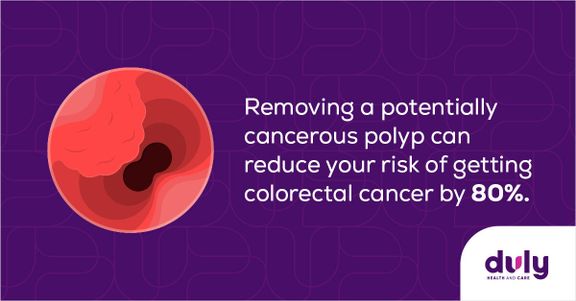
What Happens When Polyps Are Precancerous
Breathe a sigh of relief — removing a precancerous polyp means it has no chance of growing and turning into cancer. You don’t need to worry.
That being said, it’s not something to forget about. Having a history of polyps can make you more likely to develop additional polyps in the future, and the more you have (especially if they are larger), the greater your risk that they could become cancerous or already contain some cancerous tissue. This means that your provider will likely recommend getting your next colonoscopy before the usual 10-year mark (possibly every 3 to 5 years).
Call 630−717−2600 to schedule your colonoscopy at Duly Health and Care. To learn more about your test results or digestive health, make an appointment with a Duly Health and Care gastroenterologist.
Find Gastroenterology Providers near you >
What Happens When Polyps Are Cancerous
The good news is that colorectal cancer is often treatable — especially when it is found early on.
Before getting started on a treatment plan, you will need to meet with an oncologist who specializes in digestive cancers. They will stage your cancer, which means finding out the extent of the cancer. The staging process may include tests, such as:
- Imaging tests, like computed tomography (CT) or ultrasound, to visualize the cancer and see if it has spread to nearby lymph nodes or your lungs, liver, or other organs.
- CT or X‑ray of your chest to see if the cancer has moved to your lungs
- Blood tests to check your liver function (since colorectal cancer can spread to the liver) and determine if you have anemia (too few red blood cells)
Next, your provider will put together treatment recommendations. Colon cancer is usually treated with surgery to remove the cancer. However, you may also need additional treatments, such as chemotherapy or radiation. The exact type of treatment needed depends on several different factors, like the stage of the cancer, where the cancer is located, and your overall health. You will continue to work with your oncologist throughout treatment, and may also see other providers, like a gastroenterologist.
Also read: Skip the Excuse, NOT Your Colonoscopy
When a Colonoscopy is Abnormal — But It Isn’t Cancer
Colonoscopies may be key for finding colorectal cancer, but that’s not their only job. There is a lot that your provider can learn by performing a colonoscopy.
Besides cancer, an abnormal colonoscopy could help your provider diagnose:
- Hemorrhoids: Swollen veins in your anus or lower rectum that can cause itching, pain, and bleeding.
- Diverticulosis: A condition where you have small pouch-like structures on the inside walls of your intestines, which can bleed or become infected.
- Crohn’s disease: Chronic inflammation and irritation of your digestive tract.
- Ulcerative colitis: Inflammation and ulcers (sores) inside your colon.
- Uncontrolled gastrointestinal bleeding: Bleeding within your digestive system.
Many of these conditions are treatable, so getting a colonoscopy to receive a diagnosis could be your first step toward controlling uncomfortable symptoms.
Whether you have symptoms of a digestive problem or you’re feeling healthy as can be, it’s essential to get screened for colorectal cancer. If you are 45 or you’re at high risk for colorectal cancer (e.g., you have a family history of early colorectal cancer, smoke, or have a condition like type 2 diabetes), talk to your provider about getting started.
Call 630−717−2600 to schedule your colonoscopy at Duly Health and Care.
Find Gastroenterology Providers near you >
Health Topics:



